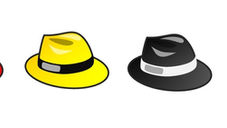top of page

Events:


16 dní do události
Komplexní kurz koučinku – 120 hodinový, akreditace MŠMT
Blog:
“Tvůj život je to, co z něj dělají tvé myšlenky” ~Marcus Aurelius
About
O MNĚ
Můj životní cíl je umožnit týmům a jednotlivcům uskutečnit změnu, aby získali větší osobní a profesní svobodu.
Pracuji s lidmi, kteří chtějí ve svém životě změnu. Poskytuji výkonnostní koučování a mentoring jednotlivcům, projektovým a produktovým týmům nebo společnostem, které používají jak klasické, tak agilní metody řízení.
Mým cílem je rozvinout váš potenciál, podpořit vás dostat se k cíli, nastartovat změnu v jakékoliv oblasti a zaměření, které si stanovíme.
V rámci koučování s klienty řešíme nejčastěji tato témata: Motivace, Cíle, Výsledků, Kreativity, Time Managementu, Nového startu, Změny kariéry, Zlepšení nebo získání nových dovedností, nového chování a relaxace.
Vše, co používám při práci s klienty jsem nejdříve aplikoval na sobě. V průběhu soustavného vzdělávání prokazuji své schopnosti praktickými testy a ukázkami před akreditační nebo certifikační komisí.
Zavázal jsem se k dodržování etického kodexu kouče, mezinárodní organizace koučů ICF, který pravidelně obnovuji a případná zjištění v souladu s pravidly ICF napravuji.










"Tajemství úspěchu je v tom, že začneš" ~ Mark Twain
JAK VÁM
MOHU POMOCI?
Widget Didn’t Load
Check your internet and refresh this page.
If that doesn’t work, contact us.
Contact
bottom of page





















































































